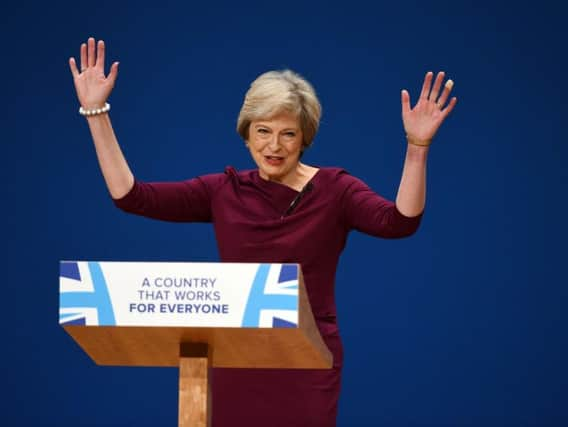UPDATED: Manufacturing is in '˜great peril'


The report by the influential Sheffield Political Economy Research Institute (SPERI), warns that there are few signs of sustainable growth in advanced manufacturing. Possible trade barriers caused by Brexit are also likely to cause significant challenges, the report said
SPERI, which is an academic institute based at the University of Sheffield, argues that manufacturing is creating lower-skilled jobs without boosting productivity.
Advertisement
Hide AdAdvertisement
Hide AdThe report analyses the challenges facing Theresa May, who has made industrial policy one of the key pillars of her economic agenda,
The report casts doubt on some of the recent positive analysis of manufacturing’s prospects, following the collapse in the value of sterling.
Between the 1970s and 1990s, a significant number of jobs were lost in British manufacturing, yet output continued to grow, the report said.
The academics have found that this began to shift in the 2000s, with job numbers falling by a third, and output dropping by around four per cent.
Advertisement
Hide AdAdvertisement
Hide AdThe SPERI report said: “Since 2011, the historical decline in manufacturing jobs has gone into reverse, with the number of jobs having risen by around five per cent. However, output growth during this period has been negligible.”
Dr Craig Berry, deputy director of SPERI and author of the report, said: “The growth in manufacturing jobs in the last five years, however limited, is to be welcomed. British manufacturing is not dead, but the sector is in great peril.
“There are few signs of sustainable growth in advanced manufacturing industries, and we now seem to be witnessing a new phenomenon, whereby the UK manufacturing sector is creating lower-skilled jobs without enhancing its productive capacity.
“This is a different kind of manufacturing decline than we have experienced in the past, but it is decline nevertheless.
Advertisement
Hide AdAdvertisement
Hide Ad“Despite some analysts predicting a resurgence in manufacturing due to the fall in sterling, Brexit is likely to prove to be a significant challenge to the manufacturing sector in the years ahead, given the probability of trade barriers between UK manufacturing and its key trading partners, lower levels of investment from European manufacturing firms, and a more challenging research environment for UK universities.
“Theresa May has promised a renewed focus on industrial policy, but it is not clear that her agenda will differ substantively from that of the previous Government.
“What is required is an industrial strategy which ensures all economic policy functions are focused on supporting sustainable industrial development.
“Challenging the primacy of the Treasury in economic policy-making will be central to this endeavour.”
Advertisement
Hide AdAdvertisement
Hide AdWriting in The Yorkshire Post in August, Ms May promised to get behind Yorkshire’s innovators and entrepreneurs.
The Prime Minister added: “As we leave the EU, the British Government will underwrite science investments made by EU institutions, so that key investments in Yorkshire - like EU funding for advanced materials in Rotherham - are not disrupted. And to help us realise the benefits, the Government will now develop a proper industrial strategy to back Yorkshire’s strengths,”